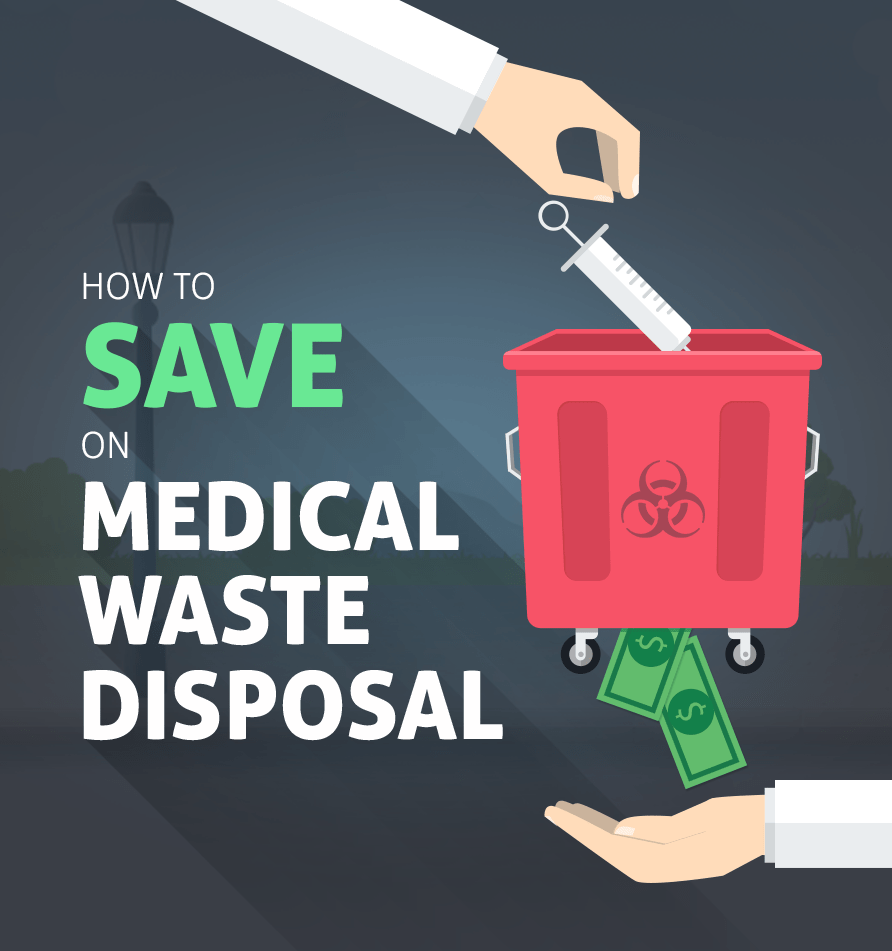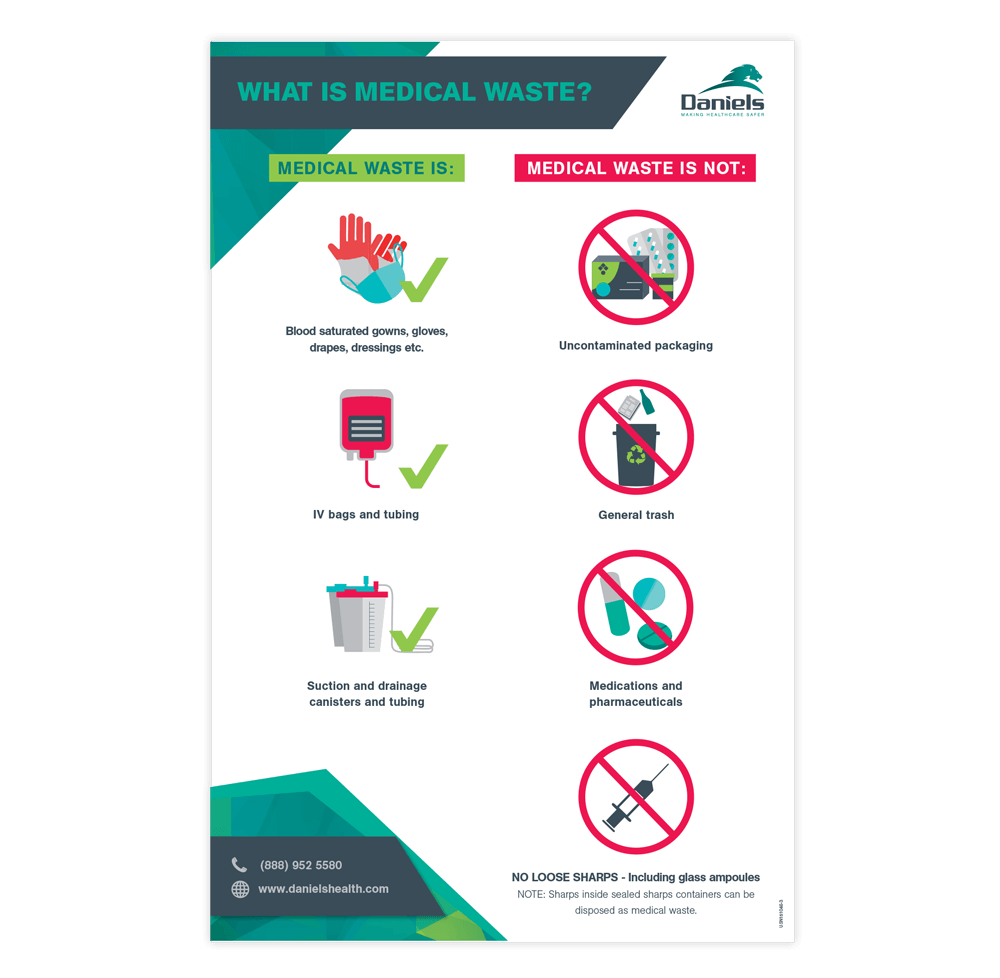Cost-efficient Medical Waste Disposal Services for Facilities and Medical facilities
Cost-efficient Medical Waste Disposal Services for Facilities and Medical facilities
Blog Article
Navigating Medical Garbage Disposal: Necessary Solutions for Healthcare Facilities
Health care facilities, whether large healthcare facilities or small clinics, are handed over with the duty of handling, treating, and disposing of a large selection of clinical waste streams. Understanding the crucial services that support medical waste disposal is not simply an issue of compliance however also an essential part in guarding public health and ecological well-being.
Regulatory Compliance Support
For healthcare facilities, making certain regulatory conformity assistance is vital to maintain correct handling and disposal of clinical waste. Abiding by policies stated by companies such as the Environmental Protection Firm (EPA) and the Occupational Safety and Health And Wellness Administration (OSHA) is critical to avoid environmental contamination, shield public wellness, and avoid possible lawful repercussions. Regulatory conformity assistance offers medical care facilities with support on how to effectively segregate, store, transport, and throw away various types of medical waste based on neighborhood, state, and federal regulations. This assistance includes assistance in creating and implementing comprehensive waste administration strategies, conducting regular staff training sessions, and performing audits to make sure recurring compliance. By partnering with governing compliance specialists, medical care centers can stay current on advancing guidelines, alleviate risks related to incorrect garbage disposal, and ultimately add to a safer and extra sustainable atmosphere for all.
Waste Segregation Guidance

Medical care centers have to provide clear standards and training to team on just how to set apart waste properly. This consists of separating basic waste from hazardous materials such as sharps, infectious waste, pharmaceuticals, and chemical waste. Color-coded containers, labels, and signage are commonly utilized to help in waste segregation practices. Regular audits and surveillance of waste partition procedures are important to identify any kind of problems and make needed improvements.
Collection and Transportation Providers

Proper collection and transport solutions are vital components of the clinical garbage disposal procedure in medical care facilities. These services ensure that dangerous products are dealt with safely and in compliance with guidelines to protect both the atmosphere and public health and wellness. Medical care facilities rely upon specialized waste management companies to supply reliable collection and transportation services customized to their needs.
Medical waste collection entails segregating various kinds of waste at the point of generation, using color-coded bags or containers to identify in between basic, unsafe, pharmaceutical, and various other waste streams. Educated personnel must do this task to protect against contamination and make certain appropriate disposal. As soon as accumulated, the waste is transported in dedicated lorries geared up to handle hazardous products safely. These cars abide by rigorous safety and security criteria and comply with assigned paths to qualified therapy facilities for disposal via techniques such as incineration, landfilling, or sanitation.
Treatment and Disposal Solutions
In the world of medical waste disposal for health care centers, after the crucial phase of collection and transport services, the focus moves in the direction of executing efficient therapy and disposal remedies. pop over to these guys Therapy options usually include procedures such as autoclaving, which makes use of heavy steam under stress to decontaminate the waste. This method is frequently used for contagious waste that must be provided non-hazardous prior to disposal. Another common treatment approach is incineration, where waste goes through high temperature levels in regulated settings to decrease its quantity and eliminate microorganisms.
Disposal services encompass the last action in the medical waste management process. Facilities might select garbage dump disposal, where treated waste is thoroughly deposited in marked areas. Medical Waste Disposal Services. Conversely, health care facilities can pick to use waste-to-energy centers, which incinerate waste to produce electrical power. Reusing and resource healing are likewise obtaining traction as lasting disposal alternatives for particular types of medical waste materials.
Efficient therapy and disposal solutions are extremely important in making sure compliance with regulations and guarding public health and the setting. Medical care facilities need to carefully evaluate and pick ideal methods that line up with their waste monitoring goals and sustainability campaigns.
Staff Training and Education And Learning

To successfully handle clinical garbage disposal in medical care facilities, extensive staff training and education play a vital duty in making certain adherence to regulative needs and maintaining a secure environment. Appropriate training furnishes staff with the knowledge and abilities needed to handle different types of clinical waste, segregate them properly, and package them safely for disposal. By informing workers on the dangers associated with improper handling of clinical waste, facilities can minimize the likelihood of crashes, contamination, and regulative violations.

Final Thought
In conclusion, medical care centers rely upon essential clinical waste disposal services to guarantee regulative compliance, appropriate waste partition, risk-free collection and transportation, efficient therapy and disposal, in addition to staff training and education. These solutions play an important function in maintaining the health and wellness of both medical care employees and the general public, highlighting the relevance of proper management of medical waste in healthcare settings.
For medical care centers, making sure regulative compliance support is important to preserve proper handling and disposal of clinical waste. Waste partition includes categorizing different kinds of medical waste to ensure appropriate handling, treatment, and disposal. This includes dividing general waste from harmful materials such as sharps, infectious waste, drugs, and chemical waste.Clinical waste collection includes segregating different types of waste at the factor of generation, utilizing color-coded containers or bags to differentiate in between basic, harmful, pharmaceutical, and various other waste streams.In the realm of medical waste disposal for medical care centers, after the vital phase of collection and transportation solutions, the focus shifts in the direction of applying efficient therapy and disposal remedies.
Report this page